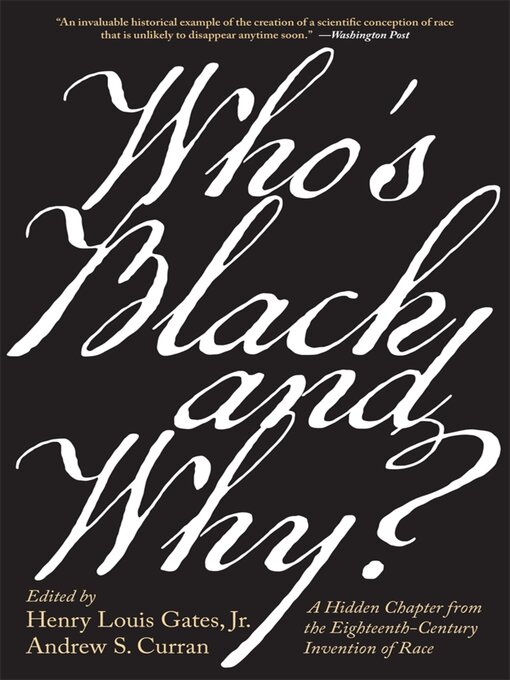2023 PROSE Award in European History
"An invaluable historical example of the creation of a scientific conception of race that is unlikely to disappear anytime soon."
—Washington Post
"Reveals how prestigious natural scientists once sought physical explanations, in vain, for a social identity that continues to carry enormous significance to this day."
—Nell Irvin Painter, author of The History of White People
"A fascinating, if disturbing, window onto the origins of racism."
—Publishers Weekly
"To read [these essays] is to witness European intellectuals, in the age of the Atlantic slave trade, struggling, one after another, to justify atrocity."
—Jill Lepore, author of These Truths: A History of the United States
In 1739 Bordeaux's Royal Academy of Sciences announced a contest for the best essay on the sources of "blackness." What is the physical cause of blackness and African hair, and what is the cause of Black degeneration, the contest announcement asked. Sixteen essays, written in French and Latin, were ultimately dispatched from all over Europe. Documented on each page are European ideas about who is Black and why. Looming behind these essays is the fact that some four million Africans had been kidnapped and shipped across the Atlantic by the time the contest was announced.
The essays themselves represent a broad range of opinions, which nonetheless circulate around a common theme: the search for a scientific understanding of the new concept of race. More important, they provide an indispensable record of the Enlightenment-era thinking that normalized the sale and enslavement of Black human beings.
These never previously published documents survived the centuries tucked away in Bordeaux's municipal library. Translated into English and accompanied by a detailed introduction and headnotes written by Henry Louis Gates, Jr., and Andrew Curran, each essay included in this volume lays bare the origins of anti-Black racism and colorism in the West.
- No wait, no problems
- What's new?
- Popular titles
- Check these out!
- Picture Books
- We Love Our Pets- Juv
- See all ebooks collections
- No wait, no problems
- What's new?
- Popular titles
- Check these out!
- Great Audiobooks for a Family Road Trip
- Audiobooks to Make You LOL
- Audiobooks for the Whole Family
- See all audiobooks collections
